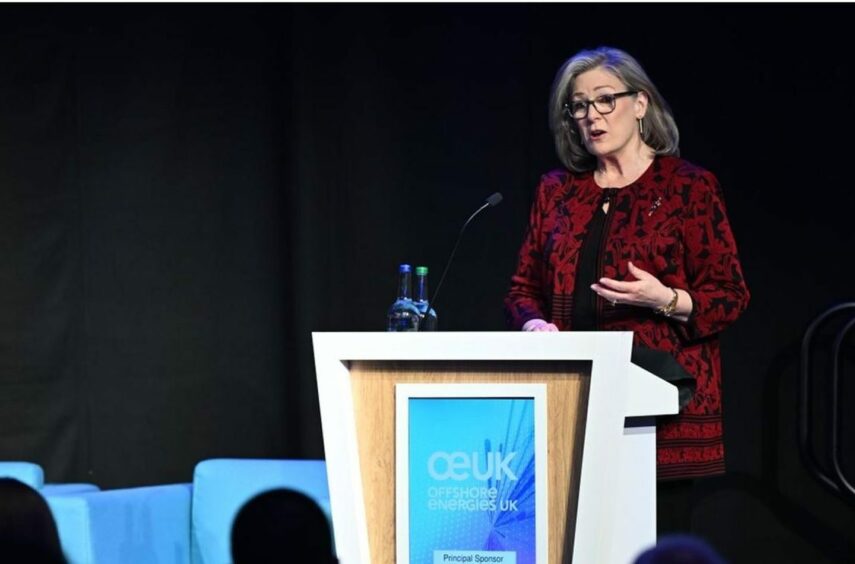
The chief executive of Harbour Energy (LON: HBR) said another suite of bumper results will enable the company to reduce its net debt to zero in a matter of months, but was critical of the impact of the government’s windfall tax.
London-listed Harbour reported a 12-fold increase in pre-tax profits in its first-half results on Thursday, which surged to $1.49 billion compared with $120m in the same period last year.
Revenues also surged by more than 70% to $2.6bn during the period, while free cash flow grew to $1.4 bn.
Significant hedging means Harbour has not been fully exposed to the boom in oil and gas prices over the past year, though it has still achieved substantial returns.
Speaking during an investor call on Thursday, chief executive Linda Cook said: “By hedging to protect us from periods of low oil prices as we had in 2020, we’ve been able to lock in returns while protecting the balance sheet and are now projected to be net debt free in just a few months’ time.”
Ms Cook said a “rapid deleverage” has seen net debt fall from $2.9bn at the completion of its merger with Premier Oil in mid-2021 to $1.1bn as of the end of June 2022.
“With average operating costs of about $15 per barrel, margins are strong. This leads to material cash flow generation that supports both continued investment and high return projects and the capacity for shareholder returns,” she added.
Bumper free cash flow also prompted Harbour to increase its shareholder buybacks, upped from $200m to $300m, alongside a $98m dividend declared back in May.
Chief financial officer Alexander Krane said that the reduction in leverage meant the company was now looking to increase its exposure to market pricing. Previously he said the group’s hedging strategy had largely been set by the requirements of its reserves-based lending (RBL) facility.
‘Hundreds of millions’ less to spend
Meanwhile, Harbour joined other North Sea players in beginning to calculate the implications of the government’s energy profits levy (EPL).
Mr Krane said the group expects a $300m liability for this year, of which $170m would be paid in December and the balance in early 2023.
Questioned as to the impact of the EPL’s investment allowances on company plans, Ms Cook said: “Honestly I scratch my head a bit about that. Yes, there is an additional allowance that we get – it marginally helps the economics of some projects – but the bigger impact is that we have hundreds of millions of dollars less to spend because our taxes are higher.”
She said that new field developments take years of work, from seismic to drilling, engineering and procurement and that in today’s market environment this was a harder and longer process than ever before.
“The notion that all of a sudden, because the investment allowance is a bit more attractive we can do a lot more work in 2023 is a little bit unreasonable. Most of our rigs for next year are already locked in, so it’s very difficult to just make a change in investment plans,” she continued.
Neither would the current terms of the EPL enable Harbour to claim allowances for investment in its carbon capture and storage (CCS) projects, she said.
As a result, she suggested the additional tax burden would prompt the explorer to continue with plans for more diverse areas of operation.
“We’ve always had a strategy to have a more diverse portfolio than we do today. We’ve always been uncomfortable with the fact that we have a lot of eggs in the UK basket and we have the ambition to establish a material base of production in at least one other region,” Ms Cook stated.
“That remains the same as it always has and I think has just been reinforced by what we’ve seen with the fiscal actions taken in the UK recently.”
Recommended for you
